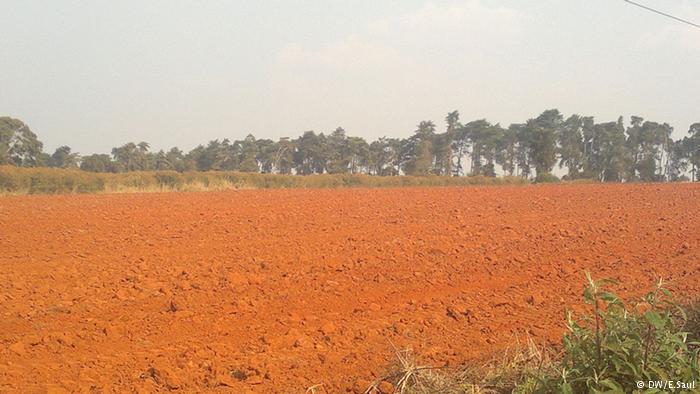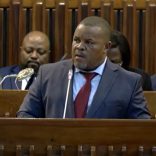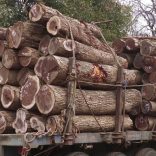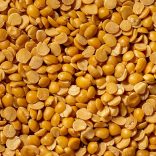Mozambique: CTA president advocates urgent creation of Agricultural Bank
ProSavana agricultural development plan remains half-implemented – Mozambique

DW / ProSavana test field in Lichinga
Five years after its conception, ProSavana, the ambitious agricultural cooperation project between Mozambique, Brazil and Japan, has not yet been fully implemented, although work started in 2011.
Considered the largest agricultural modernisation project in Mozambique, ProSavana covers 19 districts along the Nacala corridor in the north of the country, totalling some 14.5 million hectares of land. Experts hoped it would be possible to integrate small subsistence farmers into ProSavana, but this does not seem to be the priority.
The program has three components: research, extension and the master plan. Criticism of this last point has prevented the project from being finally implemented. For some, ProSavana represents Mozambique’s best chance of development. But for others, it seems more likely to replicate the deficiencies of the Brazilian model.

“We know the impacts created by PRODECER in the Brazilian ‘Cerrado’, and we would not want this to happen in Mozambique: landless people and agriculture that marginalises rural communities,” says Luís Muchanga, executive director of the National Union of Peasants (UNAC) in Mozambique.
ProSavana is often compared to the PRODECER project in Brazil which, from 1979 to 1990, provoked several criticisms for environmental damages and the model of agribusiness development based on monoculture.
Development
Mozambique has a mostly rural population – about 17 million people live in rural areas, according to 2016 government data. Accordingly, agriculture is a key part of the country’s development and even ProSavana’s critics recognise this. It is acknowledged that small yielders can at present barely export what they produce for lack of infrastructure.
In 2011, when ProSavana was conceived, the then president of the country, Armando Guebuza, announced that one of the project’s objectives would be to make land available to farmers, making them more productive. The project has not reached a practical stage and there have already been denunciations of expropriation of land and damage to the environment.
According to members of movements opposed to ProSavana, the introduction of technologies that are not suitable for small yielders and the focus on export monoculture are irreconcilable with small farmers’ way of working. They therefore argue that ProSavana should change its idea of what constitutes development.

Mechanism of dialogue
Dialogue with small farmers might be a way out of the impasse, ProSavana supporters believed, so in February of this year a mechanism was added to provide for consultation and try to move forward with the project, as Yuri Wófsi, general coordinator of the Brazilian Cooperation Agency (ABC), explained to DW Africa.
“Effective and direct participation by way of a coordination mechanism is a great novelty in the program. The mechanism is officially sanctioned and is expected to contribute to the master plan and to all ProSavana actions. In addition, the implementation of field activities will be increasingly observed,” Wófsi says.
However, the consultation mechanism is itself criticised. Members of the movement ‘ProSavana Nao’ (‘No ProSavana’) denounce it as a ruse to dismantle social movements, even by financing some of them, says Mozambican journalist Jeremias Vunhanje.
“In February 2016, there was a meeting in Nampula, to which were only invited the members of those organisations whose leaders who had agreed to accept funding. Unfortunately, the World Wide Fund for Nature (WWF) is involved in this process, as are other international organisations,” he says.
Integration
According to agrarian economist and executive director of the Rural Environment Observatory João Mosca, ProSavana could integrate small yielders, providing them with infrastructure and basic services such as education and health.
However, integrating small farmers into agribusiness goes far beyond dialogue. It depends on a change in the development model adopted. “I do not know of any successes in this aspect, which does not mean that it is not theoretically possible,” says Mosca.
Five years after its inauguration, ProSavana still seems far from agreement between all the players involved. Journalist Jeremias Vunjanhe adds that the role of the Mozambican government should be emphasized because, given the pressure exerted by large international agencies, it would have cut off many lines support for small farmers.
Small farmers benefiting from ProSavana would therefore depend on a development model in which small producers also benefited from the infrastructure, had access to basic education and health services and could also get richer, as in the case of Nordic countries like Denmark, Mosca explains.
According to Mosca, small farms in these countries have high productivity even though they remain practically family businesses. In other words, “family businesses and small yielders do not have to be poor. Everything depends on the development model adopted. But I doubt that this small-farmer model is part of the development and economic agrarian policy of the Mozambican government,” he concludes.













Leave a Reply
Be the First to Comment!
You must be logged in to post a comment.
You must be logged in to post a comment.